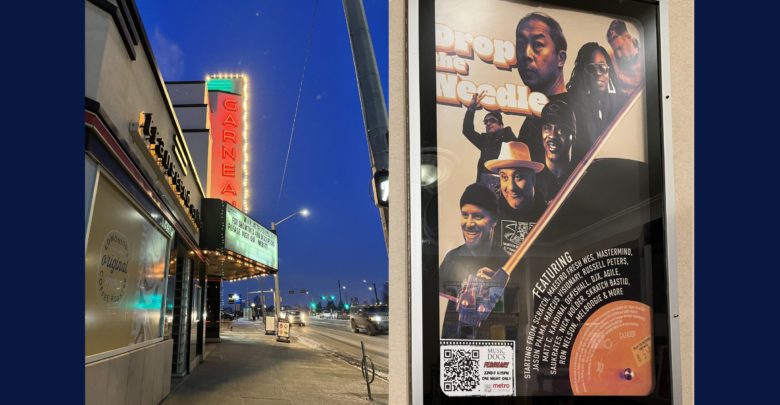“Drop The Needle”: How Play De Record become a pinnacle of the 90s club scene in Toronto
Director Rob Freeman offers an insightful glimpse into the record shop at the center of hip hop and dance music’s vibrant community.
 Breezy Prochnau
Breezy ProchnauOn February 22, Metro Cinema premiered “Drop The Needle,” a 2022 documentary highlighting the historic record shop Play De Record and its invaluable contributions to the Toronto club scene in the 1990s. While current day Toronto appears to be a thriving epicentre for hip hop and dance music, the film reminds viewers that the Canadian music industry did not always take these club-influenced genres seriously.
Throughout the 1980s, hip hop was still widely regarded as an underground genre in Toronto. Airtime was limited, with the exception of Canada’s first hip-hop radio show, Fantastic Voyage on CKLN-FM. Curated by host and hip-hop pioneer Ron Nelson, the show title seemed fitting for a scene that struggled to gain notoriety in a music industry whose primary focus was appealing to white audiences. If not the record companies, who would champion these freshly emerging disc jockeys (DJ)?
Enter Eugene Tam, an immigrant from Trinidad with an insatiable hunger for great records. Upon moving to Canada to attend school in 1981, Tam soon realized that the commercial record stores in Toronto (like A&A Records and Sam The Record Man) were unfit to satisfy the widening commercialized music market.
Years later, Tam sensed an opportunity after spotting a vacancy in the back room of a “sleazy” mom-and-pop store on Yonge Street. It was in this back room where he would found Play De Record in 1990.
Customers brave enough to walk through the neon-littered convenience shop, stocking cigarettes and other explicit items, would find themselves in a DJ’s paradise. The shop curated records from various genres including house, Latin, and gangster rap.
The film shows a comprehensive display of the various ways Play De Record fostered a community among DJs and listeners within the club scene. It seemed that every new business venture Tam introduced to the shop further elevated the community to a new level of strength and status.
The sale of “party” tickets promoted interaction amongst like-minded music fans, beyond the store walls. The introduction of an independent record label, Steppin’ Bigga, provided opportunities to DJs and artists who continued to be snubbed by major labels well into the mid-90s.
As in any developing community, there was no shortage of competition for Play De Record. Top DJs from across the city would arrive on Thursdays, the store’s shipment day, practically brawling to get their hands on coveted records. The opening of Traxx, a competitor store down the street, threatened to take away loyal customers and employees.
In spite of the chaos, the competition had its benefits for the club music community. It fueled the creativity of DJs and artists. And, both shops were pushed to order the latest, most innovative records.
While the club music scene gained momentum through the progression of the film, the unity is palpable, even heart-warming at times. But when enough digging is done, what’s underground can no longer hide in the shadows. Saddening to watch is a scene of the Royal Canadian Mounted Police (RCMP) taking hold of Play De Record. It is revealed that Tam faced lawsuits for copyright infringements involving the mixtapes being sold in the store.
Though the copyright charges were later dropped, it is implied that Play De Record lost some lustre after its run-in with the law.
Unfortunately, shortly after this time began the gradual demise of record stores as a result of technological innovations. Debuted in 1998, a software called Serato allowed DJs to store their tracks as digital files, thereby eliminating the need to carry physical records to gigs. More familiarly, the advent of streaming would have its own detrimental effects years down the road.
Fast forward to the modern day. Play De Record resides in a new location on Toronto’s Spadina Avenue, having closed the iconic Yonge Street location in 2016.
One can’t help but feel the tinge of a dying culture in the final scenes of the film — Tam in his shop, now barren of customers, is contrasted with the reminiscing of DJs, employees, and customers describing the lasting impacts that Play De Record had on them.
At the very least, this film asks the viewer to consider: are we willing to allow cultural heavens, like Play De Record, die out for good?




